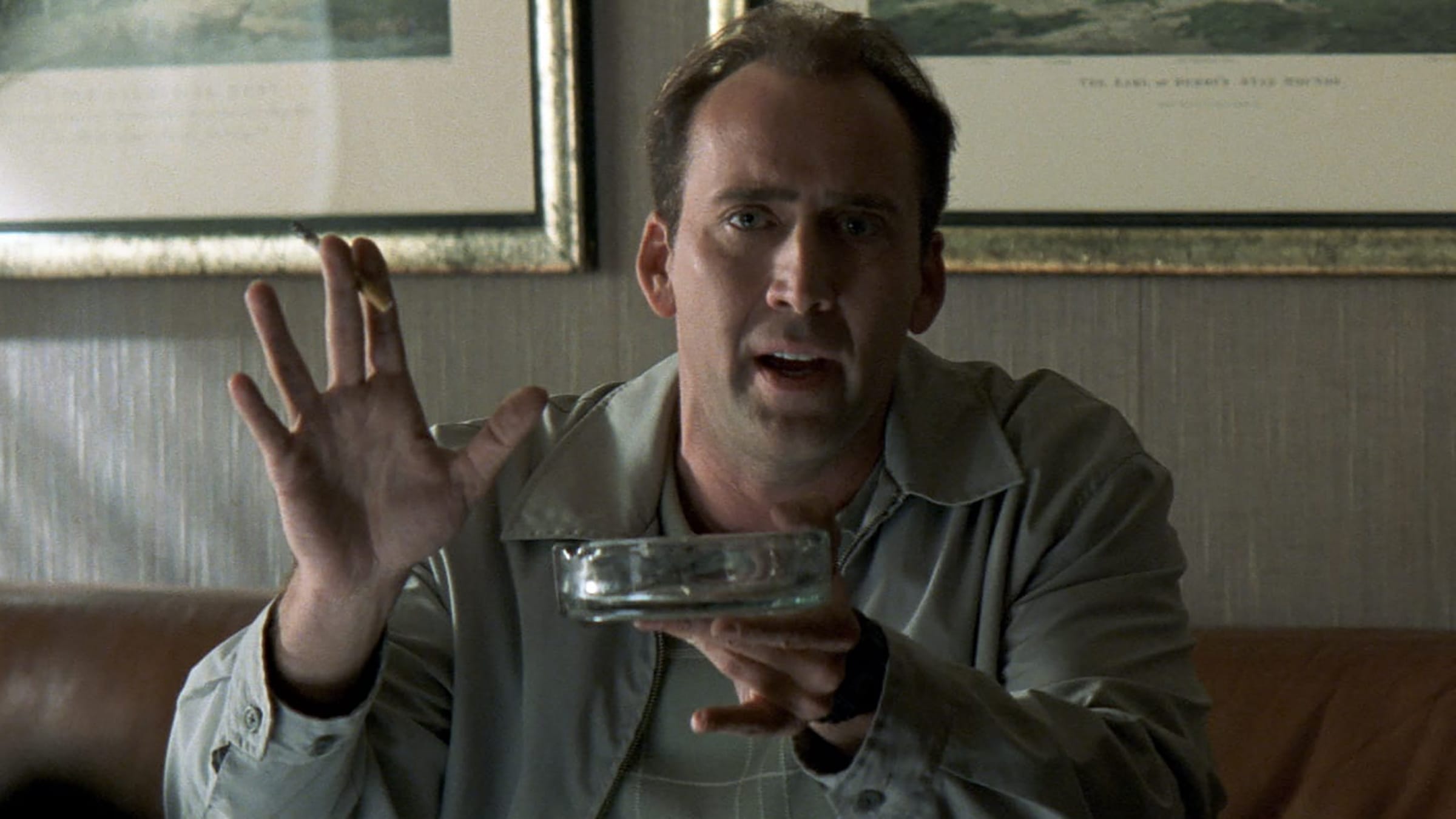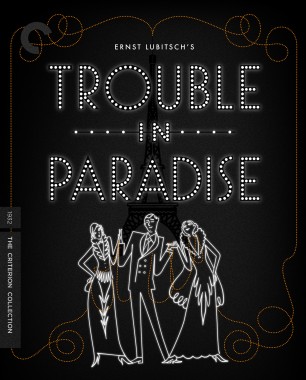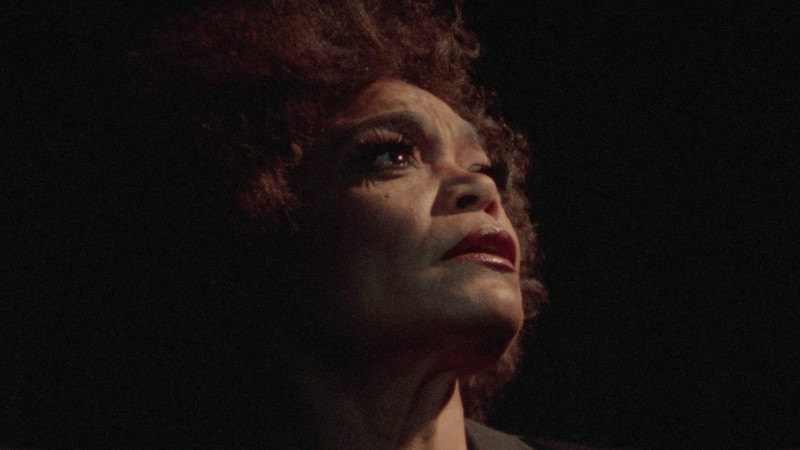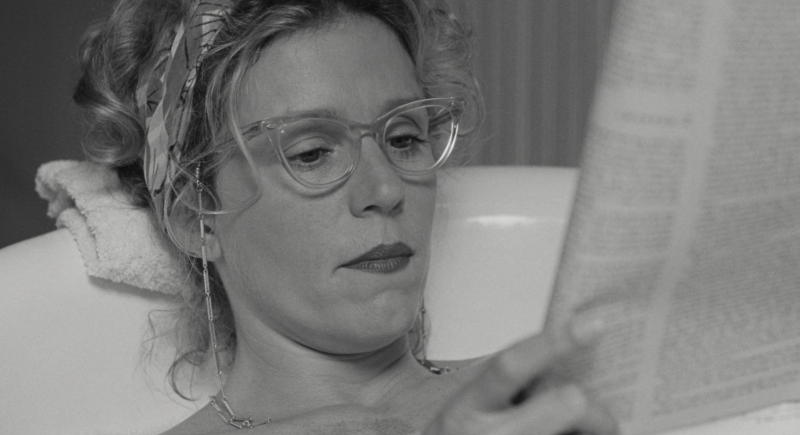These opening scenes of Trouble in Paradise deftly reveal a key truth about confidence games: they’re basically seductions. When they’re mutual, as Gaston’s and Lily’s are, you might even call them courtships or mating dances. As ideally matched as this movie’s partners in crime are, though, it soon becomes apparent that in the long term their relationship presents a unique kind of difficulty: these lovers understand one another too well. In the usual course of romance, the parties to the affair begin with sweet illusions about each other, which over time give way to more realistic assessments. With Gaston and Lily, experts both in creating illusory versions of themselves and in playing on the illusions of others, that process is hilariously abbreviated; it takes maybe an hour, tops. So when they embark together on an intricate con game whose object is the fleecing of a wealthy Parisian widow, Madame Colet (Kay Francis), the very length of the operation—it takes weeks of diligent role-playing to get the victim to give Gaston full access to her considerable fortune—puts a strain on the lovers’ relationship. Mme. Colet falls hard for Gaston, who naturally exploits her affection and then, to his surprise, starts to reciprocate it; Lily, just as naturally, sees what’s happening and doesn’t like it a bit; and Gaston, no fool himself, knows full well that Lily’s on to him. Can they trust one another long enough to pull off the scam? Paris, we have a problem.
Because Trouble in Paradise was made a couple of years before Hollywood began enforcing its rigid Production Code, which required that no deviations from the straight and narrow path of either criminal law or conventional sexual morality be rewarded in the end, the larcenous lovers are permitted to ride off blithely into the glittering night of the City of Lights, and the audience is allowed to hang on to the lovely illusions it paid for. The Code inevitably made the fantasy of the charming deceiver a lot harder to put across. Wily Lubitsch managed it again in 1942, though, in To Be or Not to Be, by the simple expedient of placing his con artists in the service of a good cause. This time, the tricksters are a company of Polish actors who use their thespian skills in order to sabotage the plans of their country’s Nazi occupiers. Even the Code watchdogs couldn’t object to that.
And somehow Preston Sturges got away with a new take on the con game as happily-ever-after romance, in his incandescently funny The Lady Eve (1941). Here, only one of the lovers, a comely card sharp named Jean Harrington (Barbara Stanwyck), is a crook; the other, Charles “Hopsie” Pike (Henry Fonda), is the purest mark imaginable—the Platonic ideal of a sap. They meet on an ocean liner, where Hopsie is on his way back from a year studying snakes in a South American jungle, and Jean, in the company of her father, Colonel Harrington (Charles Coburn), is hard at work trawling for suckers. Hopsie, as everyone on board seems to know, is from a family that manufactures an extremely popular ale; he’s the biggest fish in this stretch of ocean, and Jean doesn’t have much trouble reeling him in. After a year up the Amazon, he’s practically begging to be hooked.
The funny thing is, Jean gets hooked on him—at first, just enough to try to minimize his gambling losses to her distinctly unsentimental father, and, later, enough to accept his sudden, ardent proposal of marriage. She’s attracted to his innocence; he’s the something different she hadn’t known she wanted. But he finds out who she is and breaks their brief engagement, and Jean, feeling like a prize chump herself, vows revenge. So she descends on the Pikes’ Connecticut estate posing as one Lady Eve Sidwich, an English noblewoman on a visit to the States, and proceeds to seduce him all over again—this time with the object of wedding him, divorcing him, and taking him for every penny she can in settlement. Except for a serviceable British accent and a few tweaks to her hairdo and wardrobe, she barely bothers to disguise herself at all; she hides in plain sight, like the purloined letter. Muggsy (William Demarest), Hopsie’s gruff valet/bodyguard, keeps insisting “it’s the same dame,” to no avail. Poor starry-eyed Hopsie falls for her again. (He seems to have a certain propensity for falling; he suffers a fair number of slapstick face-plants in the picture too.) And the con artist, in her moment of apparent triumph, realizes for a second time that she doesn’t really want what she thought she wanted.









